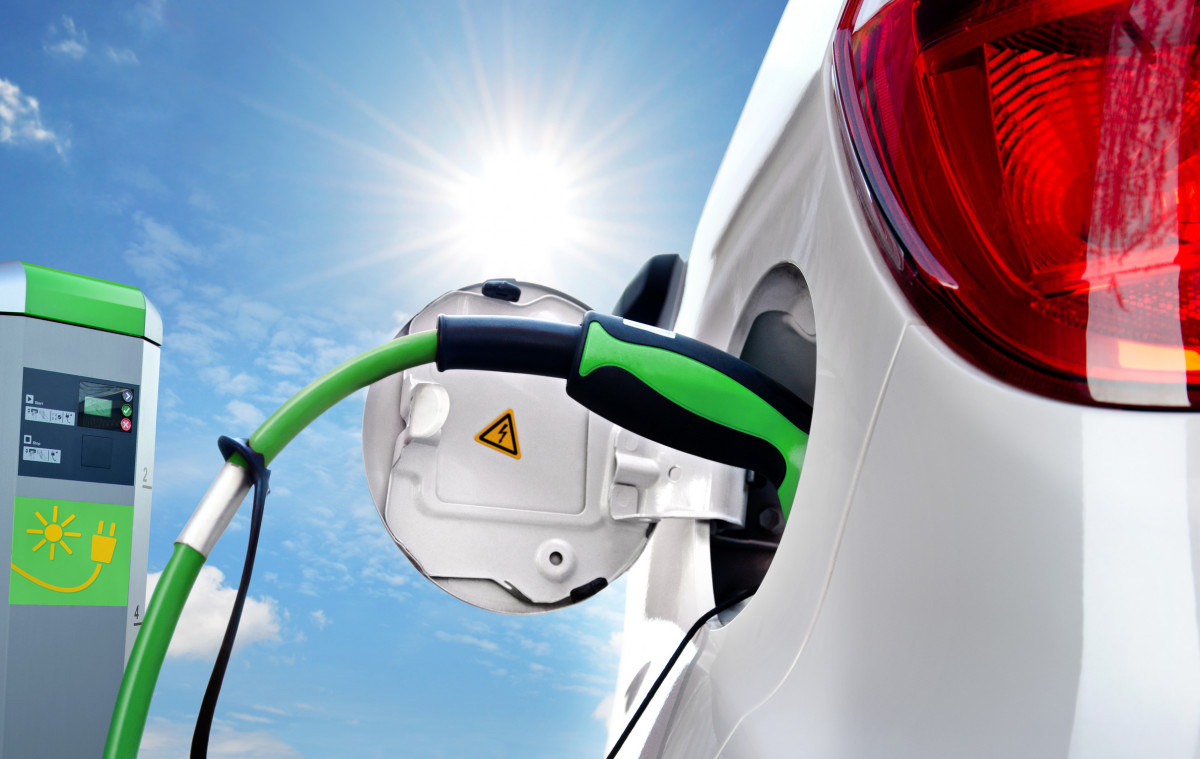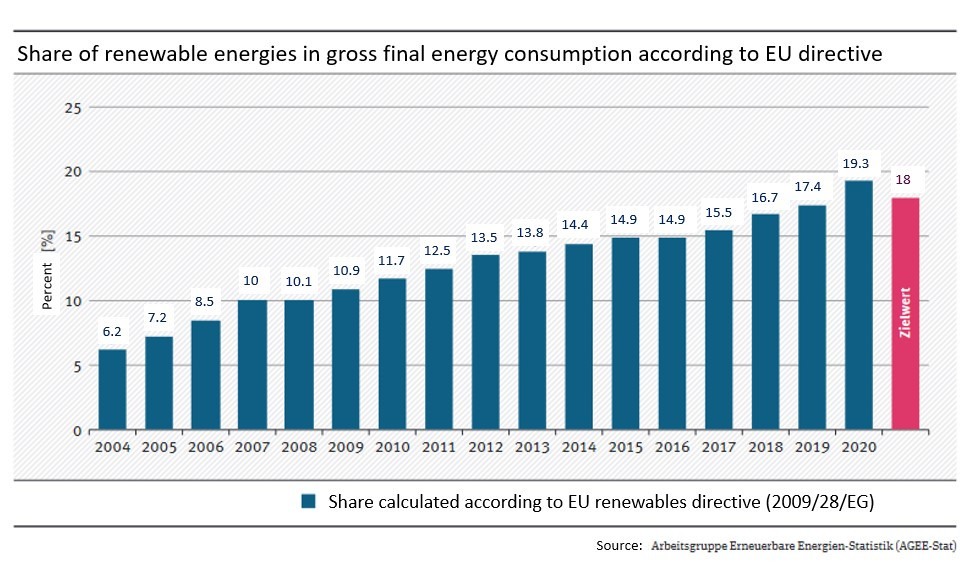Renewables share in German transport sector rises to 7.3% in 2020
In 2020, the use of renewable energy sources increased in the electricity and heating sectors and most markedly in the transport sector, an analysis by the government’s AGEE stat working group and the Federal Environment Agency (UBA) has found. With an overall share of 19.3 percent renewables in gross final energy consumption, Germany fulfilled its obligation under the EU’s Renewable Energy Directive of 2009, which demands a share of 18 percent renewables by 2020.
Due to an increase in the greenhouse gas reduction quota from 4 to 6 percent, larger amounts of biofuels (in particular bio diesel) were used last year in the transport sector, while the use of conventional fuels declined. The share of renewables thus rose from 5.6 to 7.3 percent in 2020. Another factor was the growing impact of renewable electricity used in the transport sector. As the number of electric cars tripled to over 194,000 compared to 2019, the use of renewable power (including for trains) increased by almost 10 percent. Overall, the consumption of electricity from renewable sources contributed about 12 percent to the final consumption of renewable energy sources in the transport sector.
In the electricity sector, renewables covered 45.4 percent of gross power consumption, up from 42 percent in 2019. In the heating sector, where the renewables share has been stagnating for years, the production of renewable heating and cooling fell slightly. Only because of mild weather and the reduced heat consumption of industry during the coronavirus lockdowns did the renewables share rise slightly from 15 to 15.2 percent, the analysis found.
In total, renewable energy sources prevented the emission of 227 million tonnes of CO2 equivalents, the report stated. Investments into renewable installations increased slightly to 11 billion euros. Another 18.2 billion euros were generated from plant operation, maintenance and revenues from the sale of biofuels.
Despite overall growing shares of renewables in energy consumption, many observers are worried that a slowdown in the development of new renewable installations, in particular onshore wind turbines, will see Germany fail to produce enough clean energy to feed the growing need in the transport and heating sectors. Climate Alliance Germany NGOs have demanded that a share of 75 percent renewables in power consumption must be the goal for 2030. To achieve this, they suggest new incentives and a masterplan for more wind power expansion. When Germany’s federal parliament passed the latest reform of the Renewable Energy Act that stipulates auctions and funding of renewable installations, it also agreed to review capacity targets by the end of March 2021, and if necessary, adjust them to the higher demand of renewable power and the more ambitious EU climate targets. This process has been delayed due to a lobbying scandal in the ranks of energy politicians belonging to chancellor Angela Merkel’s CDU party.



